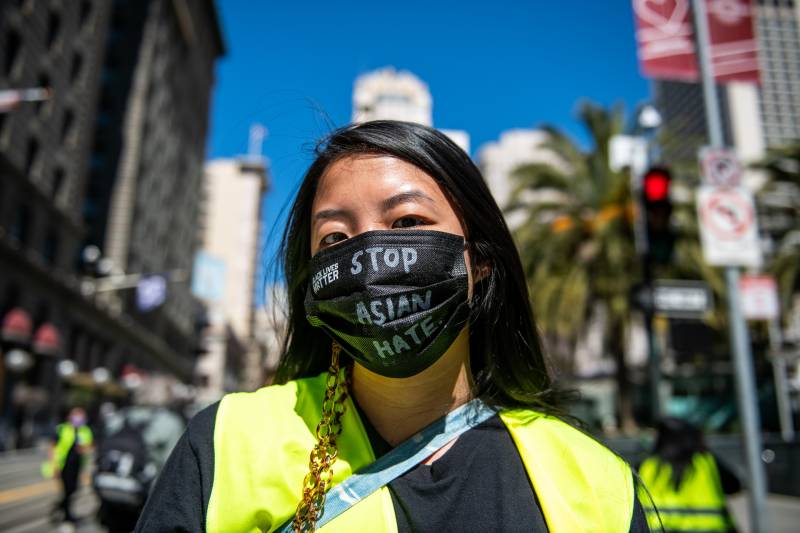“What we set out to do was spotlight and call out harm, that irresponsible scapegoating rhetoric used by politicians during election season — where it's perceived to be the way to win, to blame Asian Americans,” said Cynthia Choi, co-founder of Stop AAPI Hate.
KQED morning host Brian Watt spoke with Choi about how this report illustrates an alarming trend of anti-AAPI violence over the past couple of years.
This interview has been edited for brevity and clarity.
BRIAN WATT: These findings show a rise in hate incidents since the pandemic began. Has that also contributed to a rise in political rhetoric, referring to scapegoating?
CYNTHIA CHOI: It has in the sense that the pandemic was racialized from the very beginning, when you had the former president refer to COVID-19 as the “China virus,” as the “Wuhan virus.” This automatically set off a pattern of blaming China and blaming Chinese [people] and therefore Asian Americans for this pandemic. This is what we mean by racial scapegoating.
This is not something new. It actually goes back generations.
It certainly does. It really does define our experience as Asians, as immigrants from the early times, our arrival being blamed for various breakouts like the bubonic plague. We saw this during World War II. We saw this post-9/11. In times of fear, in times of national concerns, we see that there is a history of painting an entire group — whether it's ethnic, racial or religious — as the enemy.
Certainly, this is a period of time in which we are seeing that, as we head into the midterms. We're deeply concerned about the racial scapegoating against Asian Americans, especially with regard to painting China as the enemy. Just a few weeks ago, the former president referred to former Secretary of Transportation Elaine Chao as Mitch McConnell's “China-loving wife, Coco Chow.” This type of rhetoric stokes racism and xenophobia and is ultimately harmful to our community.
So how are you thinking about combating the impact of rhetoric like that as people get ready to vote?
One thing that we have really felt was important for us to do as we started and launched Stop AAPI Hate is to educate the general public as to what is happening, why it's happening, what are the drivers of hate. And certainly it's important to understand this from a historical context and also that it's happening today.

